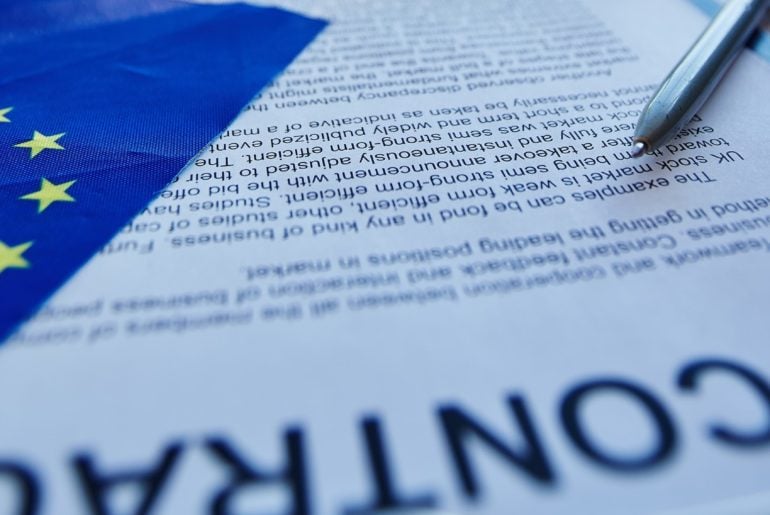The EU AI Act was adopted by the European Parliament today and is expected to enter into force within a few months, with its first substantive provisions taking effect before the end of 2024. The EU AI Act applies across the AI lifecycle – from developers to deployers of AI technologies – and organisations across industries have been watching its progress closely. Now that it is finally approved, we set out below what’s next, and…
28 January 2024 is Data Protection Day (or Data Privacy Day outside of Europe), which marks the anniversary of the Council of Europe’s Convention 108. Data Privacy Day encourages the global community to think about the importance of respecting privacy, safeguarding data, and enabling trust. In an increasingly connected and digitized world, where data protection, privacy and cybersecurity regulation are rapidly evolving, the work of the global data community is more vital, and more challenging,…
On December 22, 2023 the EU Regulation on harmonised rules on fair access to and use of data, also known as the Data Act, was published in the Official Journal of the European Union. It shall enter into force on the twentieth day following that of its publication, namely on January 11, 2024, and become applicable on September 12, 2025. The Data Act affects manufacturers of connected products and also providers of related services, including virtual…
28 January 2023 is Data Protection Day (or Data Privacy Day outside of Europe), which marks the anniversary of the Council of Europe’s Convention 108. To mark Data Protection Day 2023, Baker McKenzie’s Global Data Privacy and Security Team is pleased to present this special edition update of key data protection and privacy developments and trends across the globe, as well summarising future legislative changes, predictions, and enforcement priorities to look out for during 2023.…
On December 13, the European Commission (“EC”) announced a draft decision on the adequacy of the U.S data protection regime to protect the personal data of European Union (“EU”) residents, the EU-U.S. Data Privacy Framework (“DPF”). The DPF, which was initially announced in March 2022 as a political agreement between the EU and the U.S., and then bolstered by President Biden’s Executive Order (“EO”) in October 2022, opens the door for an EU-U.S. data transfer…
In March 2022, U.S. and EU leaders reached an agreement in principle on a new accord to protect data flows entitled the Trans-Atlantic Data Privacy Framework (“EU-U.S. DPF”). Today, the US Government has taken important steps to implement this critical data flow framework, and strengthen legal certainty for EU to US personal data transfers. First, President Biden signed an Executive Order on “Enhancing Safeguards for United States Signals Intelligence Activities” (“EO”). The EO enhances privacy…
Friday 28 January 2022 is Data Protection Day (or Data Privacy Day outside of Europe), which marks the anniversary of the Council of Europe’s Convention 108. To mark Data Protection Day 2022, our Global Data Privacy and Security Team have provided a roundup of key trends and developments across the globe from a data protection perspective as well as looking ahead to what to expect in 2022. There are new laws and developments to keep…
The new standard contractual clauses for data transfers to third countries (“Ex-EU SCCs”) and standard contractual clauses for controllers and processors in the EU/EEA (“Intra-EU SCCs”) issued by the European Commission provide for, both, chances and challenges for EU service providers supporting EU and non-EU customers, some of which are outlined below. 1. When do the Ex-EU SCCs apply? EU service providers supporting non-EU customers might want to enter into the new Ex-EU SCCs with…
The European Commission (“EC”) recently issued a set of standard contractual clauses for controllers and processors in the EU/EEA (“Intra-EU SCCs”). The Intra-EU SCCs accompany a wider set of clauses issued for extra-EU/EEA personal data transfers (“Extra-EU SCCs”), covering transfers between different types of data processing actors (processors, controllers, sub-processors etc.). Both of them were published in the Official Journal of the European Union on June 7, 2021. The clauses for intra-EU data processing arrangements…
The European Commission (“EC”) recently issued its revised standard contractual clauses for data transfers to third countries (“Ex-EU SCCs”) and a companion set of standard clauses for controllers and processors in the EU/EEA (“Intra-EU SCCs”). Both are now published in the Official Journal. The following is an introduction to the core elements of the Ex-EU SCCs and a brief overview of the Intra-EU SCCs. Legal Context The Ex-EU SCCs are a mechanism that companies can…







